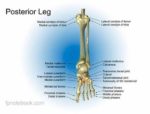Viral Diseases in Humans
Viral diseases are illnesses caused by viruses, which are very small infectious agents. They invade cells in your body and use components of those cells to help them multiply, often damaging or destroying infected cells. This process results in a viral disease.
Types of Viral Diseases
1. Respiratory Viral Diseases: These diseases commonly affect the upper or lower parts of your respiratory tract. Examples include the flu, the common cold, respiratory syncytial virus infection, adenovirus infection, parainfluenza virus infection, and severe acute respiratory syndrome (SARS). These diseases are spread by droplets generated through coughing or sneezing.
2. Gastrointestinal Viral Diseases: These diseases affect your digestive tract. The viruses that cause them usually lead to a condition called gastroenteritis, also known as the stomach flu.
3. Sexually Transmitted Infections (STIs): Some viral diseases are transmitted through sexual contact. Examples include HIV and herpes.
4. Skin Conditions: Certain viruses can cause skin conditions. An example is the human papillomavirus (HPV), which can cause warts.
Contagiousness
Not all viral diseases are contagious, meaning they aren’t always spread from person to person. However, many of them are. Common examples of contagious viral diseases include the flu, the common cold, HIV, and herpes. Other types of viral diseases spread through other means, such as the bite of an infected insect.
Treatment
Many viral diseases heal on their own. Over-the-counter medications, including nasal decongestants, cough suppressants, and pain relievers, can help to reduce symptoms. In some cases, antiviral drugs like Tamiflu are prescribed.
Prevention
The best way to avoid viral diseases is to practice good personal hygiene. This includes washing your hands often, covering your mouth when you cough or sneeze, and limiting your interactions with people who show symptoms of a respiratory condition. Vaccines can also help to reduce your risk of getting certain viral diseases.
In conclusion, viral diseases are a diverse group of illnesses that can affect various parts of the body. They range from mild conditions like the common cold to severe diseases like HIV. Understanding these diseases and how they spread can help in their prevention and treatment..



